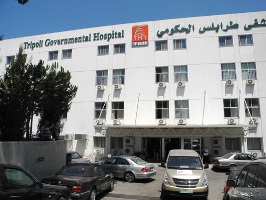
by Michael Karam
The Lebanese have a wonderful ability to adapt. I guess it
comes from having to fend for themselves under various occupiers down
the millennia. But even today, 74 years after winning independence from
France, the average Lebanese knows that he cannot rely on the state for
health care, education, electricity and water. It is a situation that
has allowed sectarian politics to flourish to the extent that allegiance
to a political party is often greater than that to the government, but
it has also prompted the private sector to take matters into its own
hands. Lebanon is, after all, arguably the purest expression of a
mercantile culture.
I
was thinking about this last week when the British media was once again
in a fit of angst over the National Health Service (NHS). Now I happen
to think, having lived full-time in the UK for over two decades, that
the NHS, along with that of the Sécurité Sociale in France, is not only
one of the best healthcare systems in the world, but also one of the
greatest expressions of the welfare state anywhere on the planet. Even if it appears to be in terminal crisis: staff shortages,
overcrowding (often attributed to so-called health tourists and EU
immigration) and underfunding (the austerity measures implemented by the
Conservative government have been blamed). Accident and Emergency
departments across the country are the regular focus of “NHS in turmoil”
stories, with tales of patients lying on stretchers in corridors for
hours waiting for treatment. It’s a sorry situation all round. Part of the problem lies with the fact that many people will pop into
A&E with non-life- threatening conditions such as a sprained ankle
or a bad cold, either because their GP is not available or they are
simply lazy and selfish, or both, and there have been calls to give
pharmacists greater powers to treat conditions that do not really
require a hospital visit. This would in theory free up hospitals to deal
with more deserving cases.
The
Lebanese have been doing this for decades. The local pharmacy is not
just a place to buy Panadol and lozenges. Pharmacists in Lebanon are
almost as highly regarded as physicians and play an integral role in
coordinating with the ministry of health to ensure what healthcare
system there is can function.
In fact in the cities, GPs as we
know them in the UK no longer play a vital role. The Lebanese have
access to highly trained specialists and can do this because everyone
has basic health insurance, similar to that available in France where
they are refunded either in full or in part for any consultations or
procedures. In my 22 years in Lebanon, my family saw dermatologists,
urologists, gynaecologists, paediatricians and orthopaedists. The
country is awash with doctors, many trained in some of the world’s best
teaching hospitals.
There is a state healthcare system but, like with schooling, most
people prefer to go private: affordable private or expensive private.
It’s their call. The country has something for all budgets, and that
includes private hospitals.
In rural communities, the dispensary
plays a crucial role in providing drugs to the less well off. There is
often a local “seen it all” GP and local hospitals do run a relatively
efficient ambulance service, often courtesy of the local Red Cross or
Red Crescent. Meanwhile, Hizbollah, the often demonised Shia political
party, can attribute much its success to giving health care and
schooling to its constituents, while the Sunni community has the
Makassed schools and the Hariri Foundation, while the church has for
centuries offered affordable education and care to its flock.
Electricity and water are another issue altogether. The private sector
has moved in to cover the state’s shortfall. It has almost become an
established sector and, come the day the government can provide a
plentiful and continuous supply of both, it will have the headache of
what to do with people who have built businesses on the back of the
state’s woeful inadequacy.
I get the feeling that when it comes
to health and education, the Lebanese don’t mind paying a bit to get
what they feel is a better service. All they really want from the state
is power and water. As a friend told me last year during yet another
power cut, “just give us these two things and the government can do what
it wants. We don’t need it”.
Michael Karam is a freelance writer who lives between Beirut and Brighton.



